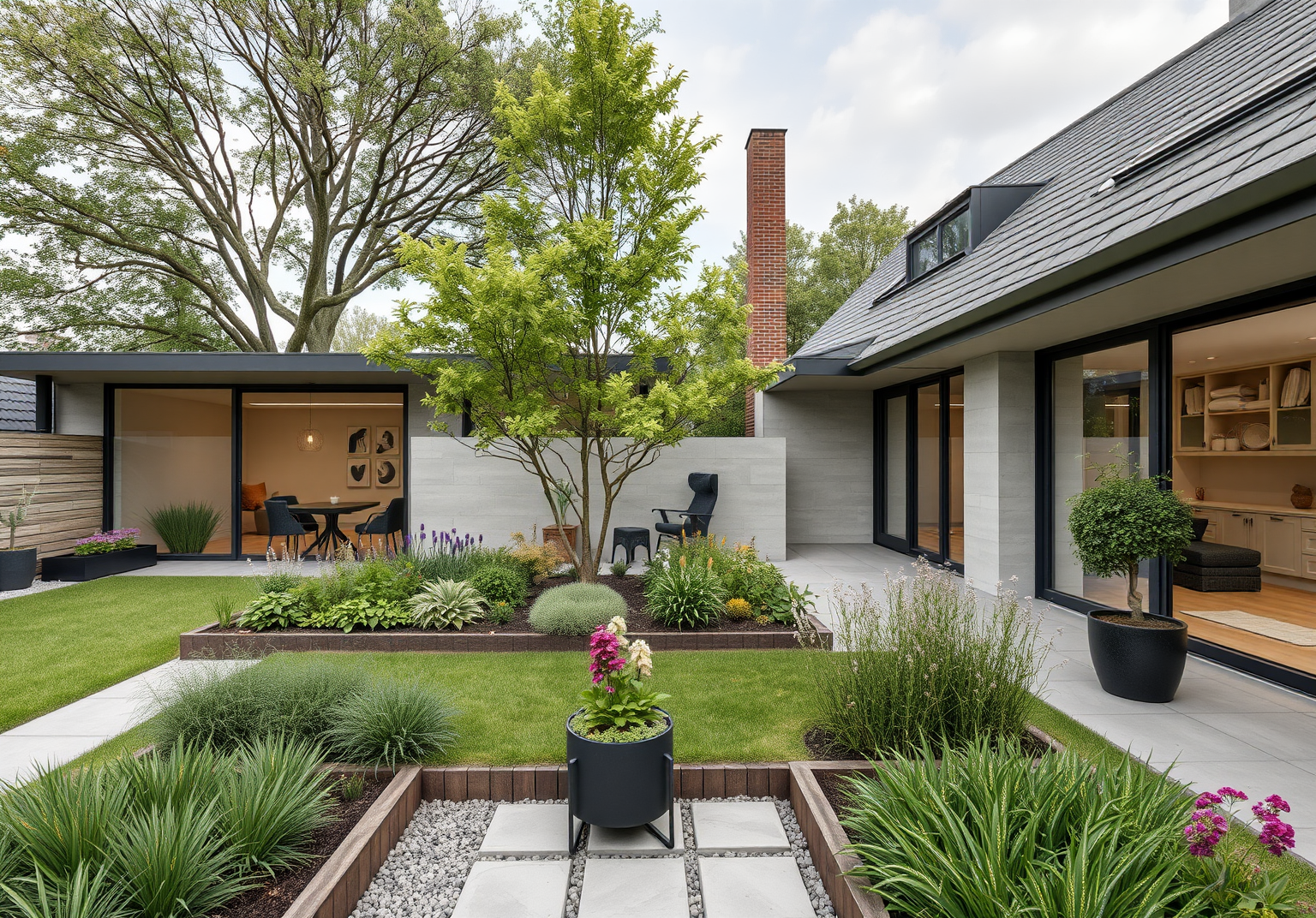Smart Home Technology Benefits: Upgrade Your Home for Convenience and Safety
Introduction
In the modern era, especially in the Netherlands, home renovation and innovation have taken a significant leap forward with the integration of smart home technology. This advanced technology not only enhances the comfort and convenience of your home but also provides substantial benefits in terms of energy efficiency, security, and overall living experience. Here, we will delve into the various advantages of smart home technology and how it can be a valuable addition to your home renovation plans.
Basic Concepts
What is a Smart Home?
A smart home is a residence that utilizes internet-connected devices to enable the remote monitoring and management of appliances and systems. This technology, often referred to as home automation or domotics, integrates various devices such as lighting, heating, security systems, and appliances into a single network that can be controlled through a smartphone, tablet, or voice commands.
Benefits of Smart Home Technology
Enhanced Home Security
Smart home technology significantly enhances the security of your home. With interconnected devices such as motion sensors, front-door security cameras, automated smart locks, and alarm systems, you can monitor and protect your home from anywhere. These systems can alert you to any suspicious activity in real-time and even allow for two-way communication with visitors through smart doorbells.
<ul>
<li>Motion sensors and security cameras for real-time monitoring</li>
<li>Automated smart locks for keyless entry and secure access control</li>
<li>Alarm systems integrated with your smartphone for immediate alerts</li>
<li>Two-way communication through smart doorbells</li>
</ul>
Energy Efficiency and Cost Savings
Smart home systems are designed to optimize energy usage, leading to significant cost savings. Smart thermostats, such as Google Nest and Ecobee, learn your habits and adjust the heating or cooling of your home to be more efficient. LED bulbs connected to smart home systems can be controlled remotely to ensure they are not left on needlessly. Additionally, smart home systems can adjust your HVAC settings based on weather forecasts, further optimizing energy consumption.
<ul>
<li>Smart thermostats that learn and adjust to your habits</li>
<li>Remote control of LED bulbs to prevent unnecessary usage</li>
<li>Integration with weather forecasts to optimize HVAC settings</li>
<li>Automated schedules for turning devices on and off</li>
</ul>
Remote Home Management
One of the most convenient aspects of smart home technology is the ability to manage your home remotely. Whether you want to change the temperature on your thermostat, preheat your oven, or lock your doors, smart home technology allows you to do all this easily from your smartphone or tablet. This feature is particularly useful for busy individuals who may forget to perform these tasks before leaving home.
<ul>
<li>Remote control of thermostats and HVAC systems</li>
<li>Preheating ovens and other kitchen appliances remotely</li>
<li>Locking and unlocking doors with smart locks</li>
<li>Monitoring and controlling other home appliances</li>
</ul>
Personalized Living Experiences
Smart home technology allows for personalized living experiences tailored to your preferences. You can set up voice-activated commands, customize lighting levels, and adjust temperature settings to your precise comfort level. Smart home systems can also store individual preferences for each household member, ensuring that everyone’s arrival home is greeted with their preferred settings.
<ul>
<li>Customizable lighting levels and color schemes</li>
<li>Temperature settings adjusted to individual preferences</li>
<li>Voice-activated commands for easy control</li>
<li>Personalized settings for each household member</li>
</ul>
Healthier Living Environment
Smart home technology can also contribute to a healthier living environment. Devices such as smart air purifiers and thermostats can monitor and maintain optimal air quality, humidity, and temperature levels. Additionally, smart home systems can simulate sunrise with light bulbs to gently wake you up, and smart mattresses can adjust to your preferred firmness levels, enhancing sleep quality.
<ul>
<li>Smart air purifiers for maintaining optimal air quality</li>
<li>Thermostats that adjust to maintain healthy humidity and temperature levels</li>
<li>Light bulbs that mimic sunrise for better wake-up routines</li>
<li>Smart mattresses that adjust to preferred firmness levels</li>
</ul>
Increased Home Value and Insurance Incentives
Investing in a smart home system can increase the value of your home. Appraisals now consider smart devices such as thermostats, smoke detectors, and security systems when determining a home’s worth. Additionally, many insurance providers offer incentives and discounts for homeowners with smart home systems, as these systems can minimize damage and reduce the number of insurance claims filed.
<ul>
<li>Increased home value due to modern technological features</li>
<li>Insurance incentives and discounts for smart home systems</li>
<li>Reduced risk of damage and insurance claims</li>
</ul>
Practical Tips for Implementing Smart Home Technology
Start with the Basics
Begin with basic smart home devices such as smart plugs, smart bulbs, and switches. These are quick to set up and can easily automate many different tasks around the house. For example, smart plugs can automate fans, lights, lamps, slow cookers, and space heaters.
<ol>
<li>Install smart plugs for automating various appliances</li>
<li>Use smart bulbs and switches for easy lighting control</li>
<li>Automate fans, lamps, and other household devices</li>
</ol>
Secure Your Devices
Ensure that your smart home devices are secure by setting up strong passwords and multifactor authentication. Most IoT and smart home devices do not have built-in security or encryption, so it is crucial to take these extra steps to prevent unauthorized access.
<ol>
<li>Set up strong passwords for all smart home devices</li>
<li>Enable multifactor authentication for added security</li>
<li>Regularly update device software to patch security vulnerabilities</li>
</ol>
Add More Devices Gradually
As you become more comfortable with your smart home system, you can add more devices such as security systems, cameras, and video doorbells. This gradual approach will help you integrate more advanced features into your home automation setup.
<ol>
<li>Add security systems and cameras for enhanced security</li>
<li>Install video doorbells for real-time monitoring of visitors</li>
<li>Integrate other advanced devices as needed</li>
</ol>
Conclusion
Smart home technology offers a myriad of benefits that can significantly enhance the comfort, security, and efficiency of your home. Whether you are planning a house extension, complete house renovation, or simply looking to upgrade your existing home in the Netherlands, integrating smart home technology is a wise decision. With its ability to provide remote monitoring, energy efficiency, personalized living experiences, and increased home value, smart home technology is an investment that pays off in multiple ways.
By following the practical tips outlined above and understanding the various benefits of smart home technology, you can make informed decisions to upgrade your home and enjoy a more convenient, secure, and comfortable living environment.










